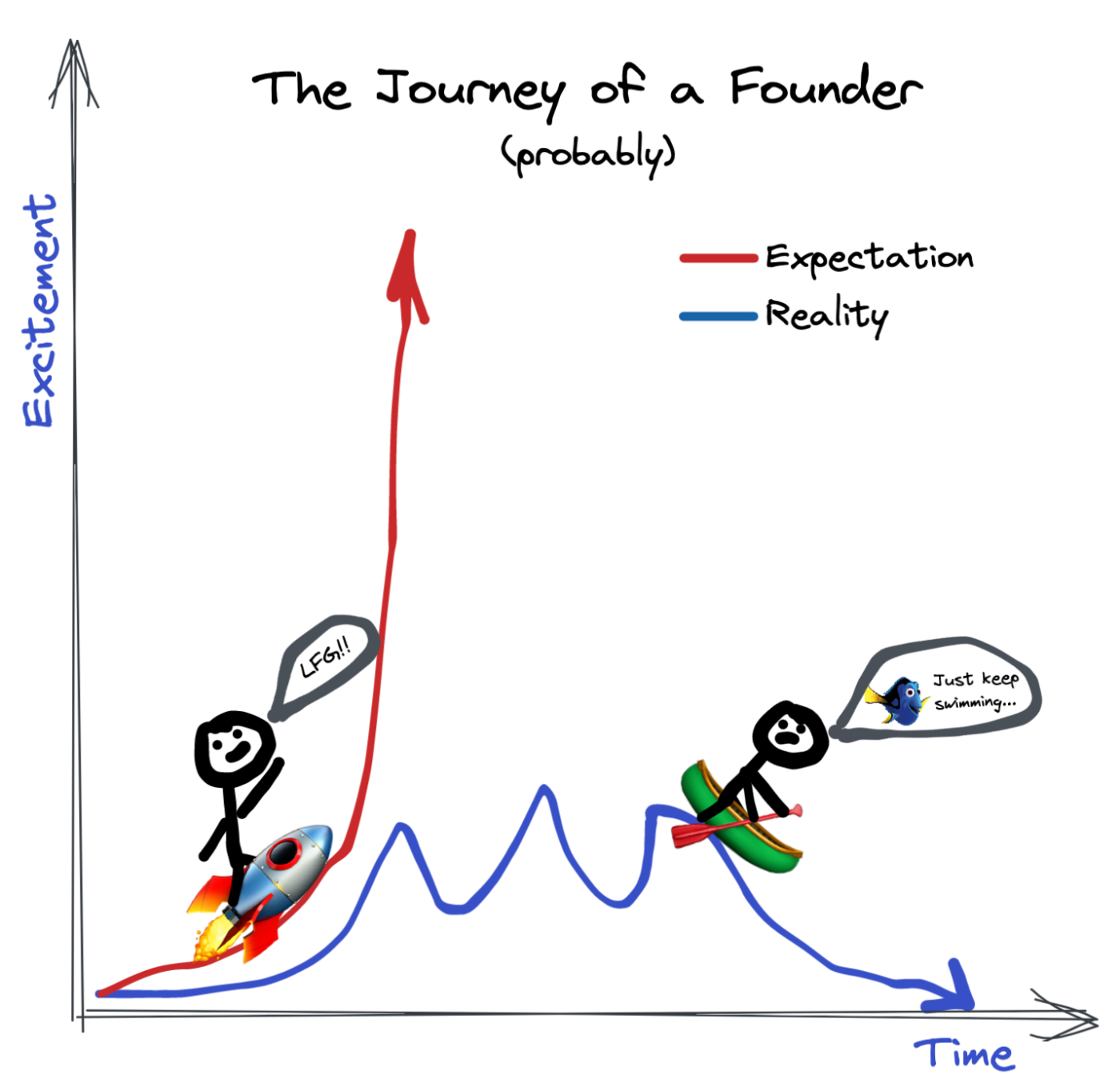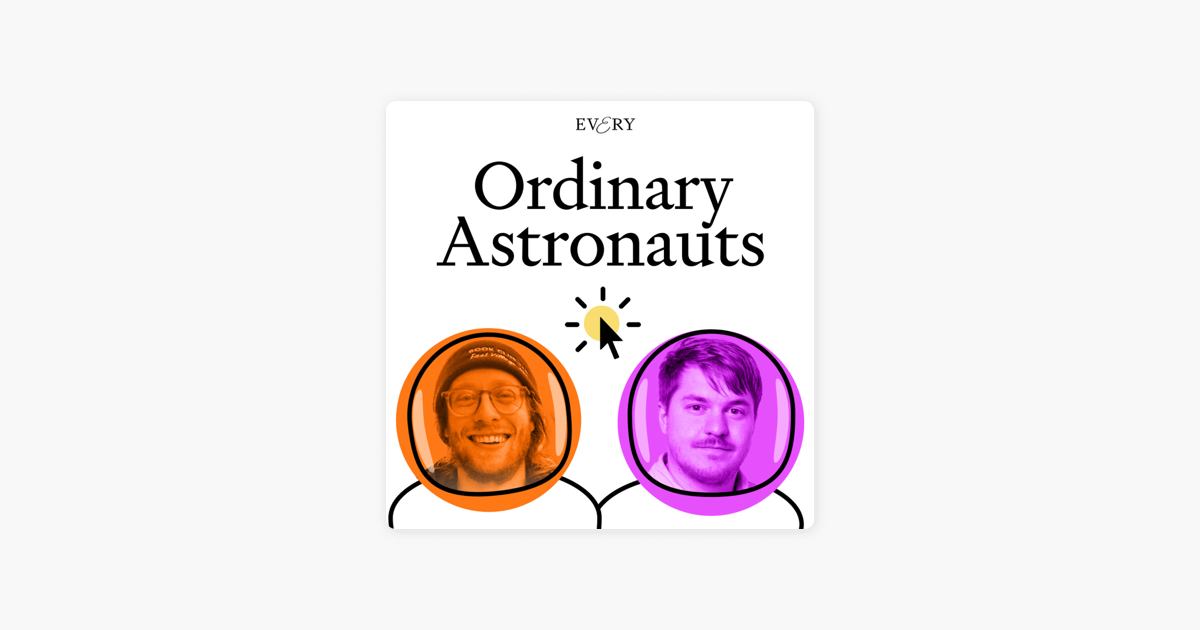
Infinite Articles, Culture-Market Fit, & Teaming Up With Muse
Here’s everything we published this week.
October 1, 2022 · Updated February 6, 2026
Knowledge Partner: McKinsey & Company
Teamwork: Working in teams and dealing with different types of people require flexibility, sensitivity, open-mindedness, and a collaborative mindset. McKinsey consultants look back on learning from mistakes, being a part of diverse teams, overcoming challenges through teamwork, and appreciating what each team member brings to the table. Watch here.
Happy Sunday!
This week, we’ve got essays on lessons from failure and the secret ingredient to startup success, plus an exploration of one potential application for AI and an exciting development in crypto. But first: some news!
In case you missed it, we’re teaming up with Muse, a visual notetaking tool for iPad and Mac, to offer paid Every subscribers a free year of Muse access. We’re beyond excited to make a subscription to Every even more valuable, and help our readers do their best work.
For more on how to claim your Muse access, click here.
Not a paid subscriber yet? Sign up now.
Now, on to the posts!
Lessons from My Failed Startup
Francisco Javier Arceo / EveryIn 2019, Francisco Javier Arceo left Goldman to start his own company. Three years later, Francisco himself calls that company “an utter business failure.”
Startup failure is never easy to talk about, but there are just as many lessons to be learned from failures as there are from successes. Here, Francisco breaks down the mistakes he made as a first-time founder, with the hopes of helping others—and his future self—avoid them.
Why Culture Eats Strategy
Evan Armstrong / Napkin MathEvery founder wants to know how to win, and every investor wants to know how to pick the winners. The problem is no one can seem to agree how to do either. Some extoll the supremacy of the founder, others insist it all comes down to frameworks. So which is it—or is it a secret, third thing?
Evan has his own theory about the source of startup success. He calls it “culture-market fit” —”that blissful intersection of an opportunity in the market with a culture that can execute on said opportunity.” Here, he breaks down what he means—and why culture beats strategy every time.
The Infinite Article
Nathan Baschez / DivinationsImagine waking up every morning and reading the perfect article. It was written just for you the moment you picked it up. It knows exactly what you’re interested in, and it can tell you more about anything you want to learn more about. Sound exciting? Nathan thinks so, too.
In this post, Nathan attempts to reverse engineer what it would take to engineer this “infinite article.” What does AI need to be able to do to make it possible? How much of that is it capable of doing today? And even if it’s all possible—would an infinite article even be a good thing?
Why Bitcoin Lightning Is So Exciting
Nat Eliason / AlmanackWhen Bitcoin first launched, its promise was a “Peer-to-Peer Electronic Cash System.” The idea was that you’d be able to transfer online payments from person to person, without having to go through a trusted third party, the same way you hand over cash in the real world.
It’s taken a while for that vision to come to fruition, but now the first group of technologies that makes good on the promise is starting to emerge. One of the most exciting is Bitcoin Lightning, “a decentralized system for instant, high-volume micropayments.” In this article, Nat explains what Lightning is and how it works, as well as some of the exciting applications using it today and what it might enable in the future.
This week on Ordinary Astronauts:
- Productivity is Emotion Regulation. Dan has been tweeting “____ is emotion regulation” a lot lately. What does that mean? It means a lot of the things we do are actually ineffectual, indirect attempts at regulating an emotion. Also, it means doing that thing well is only possible when our emotions are under control. Speaking of which...
- The Science of Exposure Therapy. Last week Dan wrote an article about exposure therapy, and we get into the details here. There is more to it, apparently, than the old cliche “face your fears” implies!
- The Infinite Article. Nathan wrote about how AI might be bringing us closer to a world where each of us doesn't just read content recommended to us by machines, but we might actually read content written by machines.
A Business Insight for the Day
Right now we are in the middle of a major shakeup in the digital ad markets. Facebook has announced a hiring freeze with hints of potential layoffs to come. Apple’s new “privacy” policies coupled with the rise of TikTok has every marketing manager reevaluating their budget allocation. Where do they spend their brand dollars? Where do they spend their direct response dollars? This interview from Tegus helps cast some light on it: the discussion is held with someone who is responsible for $500M in yearly spend.
Tegus: Within your Facebook, Instagram spend, how much would you sort of classify as branded versus Direct Response?
Interviewee: I think that's about right, 65% brand, 35% demand or your DR.
Tegus: Got it. And how would you compare that to Snapchat and TikTok in terms of branded versus DR in that split?
Interviewee:Yes. So it's probably more like 80%, if not higher, maybe between 80%, 85% brand. And TikTok were probably 75% brand, maybe again, between 75% and 80%.
Tegus: Got it. And can you just talk about like why is that the case? Why is Facebook, Instagram heavier in DR versus Snapchat and TikTok?
Interviewee: Well, it's definitely better at it, first and foremost. I would say, as of today, they're better at it than TikTok, but I would also say talk to me again in six months and I may feel differently about that, and we can get into thoughts on TikTok more.
But just in general, Facebook is and has been and continues to be better than the others at the DR demand, lower funnel tactics. Their targeting is better. They know more about more people. And so even with some of the changes that have happened over the course of the past year with Apple and whatnot, they still know more about their users than and have more of them than any other platform does.
So again, even with some of what I would call it, probably a somewhat permanent setback, I should say, in terms of what they know and how much they know, they're still far and away more aware about their users and have more of them than the other platforms. And in fact, I would say there's that and there's also just in general, our use of Snapchat is, it has a different tone and it serves a different purpose for the most part.
I don't know, when we think about Snapchat, we focus more on experiences or some of the AR tools they have and that sort of thing as opposed to the much more transactional ad-buying that we do on Facebook. And then TikTok is somewhere in between, I would argue, and I think their ad products are becoming much more sophisticated.
They have self-service tools now that they didn't have before. You don't have to just go and hire an influencer or a content creator, you could do more directly with the platform. So they're definitely improving and which is why I say maybe six months from now, I may be talking differently about this. But Snapchat today, they're still not quite where Facebook is, and Facebook has a better ad algorithm at this point today.
A Few More Recommendations
Tegus: The Outsiders | Not Boring
In addition to being an amazing repository of business insight, Tegus is a fascinating growth story in its own right. Packy McKormick talked with founders Tom and Mike Elnick about their journey to $3 billion this week for Not Boring.
How Game Design Principles Can Enhance Democracy | Noema
Gamification is everywhere—from fitness to education to finance. Should it be in our political system? Adrian Hon argues yes. He believes that the same things that have made video games the dominant form of entertainment in the 21st century can be used to make democracy more transparent, more participatory, and more fair. Here, he explains how.
The Real Magic of Rituals | Nautilus
Years of anthropological research has proven that ritual comes naturally to humans, and that we expect said rituals to have an effect. But how effective is ritual as an emotion regulation strategy, really? Or is it all just a waste of time?
We Know So Little About What Makes Humans Prosper | The Ezra Klein Show
We know Patrick Collison as the founder and CEO of Stripe. But for years, he’s also been developing and advocating for a “new science of progress.” In this conversation, Collison joins Ezra Klein to explain his worldview, and how he believes it can lead to a better understanding of what leads to human prosperity.
That's all for this week!
The Only Subscription
You Need to
Stay at the
Edge of AI
The essential toolkit for those shaping the future
"This might be the best value you
can get from an AI subscription."
- Jay S.
Join 100,000+ leaders, builders, and innovators

Email address
Already have an account? Sign in
What is included in a subscription?
Daily insights from AI pioneers + early access to powerful AI tools












Comments
Don't have an account? Sign up!